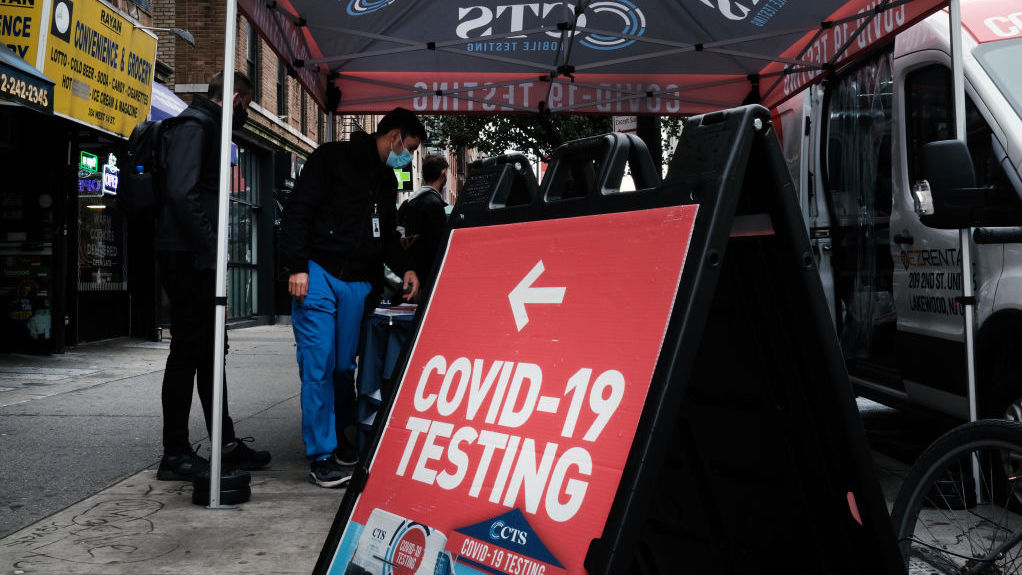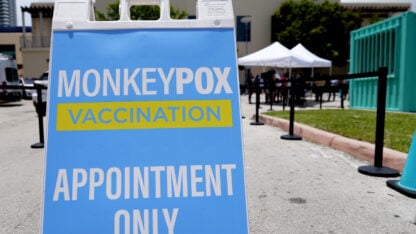While Thursday marks the end of the current federal COVID-19 emergency declarations, Georgia’s public health agency will continue to provide access to free PCR testing, coronavirus vaccines and home testing kits at locations across the state.
“That will continue for some time because we have bought up a large number of those kits and we still receive funding grants that don’t expire for another year or longer, so that we’re able to purchase these testing supplies,” said Chris Rustin with the Georgia Board of Public Health.
Private health insurance plans will no longer be required to cover the cost of at-home COVID-19 tests.
The home tests will remain free this year at county health department locations, which will also provide vaccines and booster shots. Free PCR testing will still be available at existing regional drive-through testing sites and 24-hour self-test kiosks.
COVID-19 vaccines will continue to be free at pharmacies. And the Biden administration has also announced it’s continuing to provide Paxlovid treatment supplies to states until next year.
Rustin said it’s important for Georgians to remain vigilant, take precautions when needed, and stay up to date with their vaccinations and booster shots.
“There is still a risk and certainly still an opportunity to recommend vaccinations and prevention measures to folks at most risk,” he said.
The elderly, unvaccinated and immunocompromised remain at highest risk for severe illness.
Nationwide, more than 1 million Americans have died from COVID-19. And current trends show the virus kills a couple hundred people per day.
And there have been at least 18 confirmed COVID-19 deaths in Georgia over the last week.
Overall in the state, there have so far been at least 35,362 confirmed deaths from the coronavirus, plus another 7,404 probable COVID-19 deaths, according to the Georgia Department of Public Health data dashboard.
The state dashboard will soon provide less of this data.
Under the federal emergency declarations, states were mandated to provide certain public health data to their health agencies, and to the United States Centers for Disease Control and Prevention.
With the mandates winding down, the amount of data Georgia publishes will also scale down.
For instance, the change includes ending the COVID-19 community level reporting for individual counties, which has relied on hospital admissions numbers and occupied inpatient beds numbers.
The state will continue to report hospitalization data and death records using the patient’s date of death rather than the date of report, which is a more accurate reflection of what’s going on with the coronavirus, said Rustin.
“We will continue to monitor the trends based on the data that we can collect and be able to respond appropriately after May 11,” he said.
The end of the public health emergency phase means the CDC will have less authority to collect certain types of public health data from states.
But agency officials said it will continue monitoring for virus variants and tracking U.S. hospitalizations and deaths based on death dates, emergency department COVID-19 diagnoses, lab test positivity rates and hospital admissions data.
And it will continue to conduct wastewater testing that covers about 40% of Americans
After May 11, state hospitalization data collected by CDC will be recorded weekly rather than daily, as it has been since the beginning of the emergency.
The agency said this week it will continue to receive state coronavirus vaccination reports.
And continue to report COVID-19 race and ethnicity data and continue to conduct genomic sequencing.









